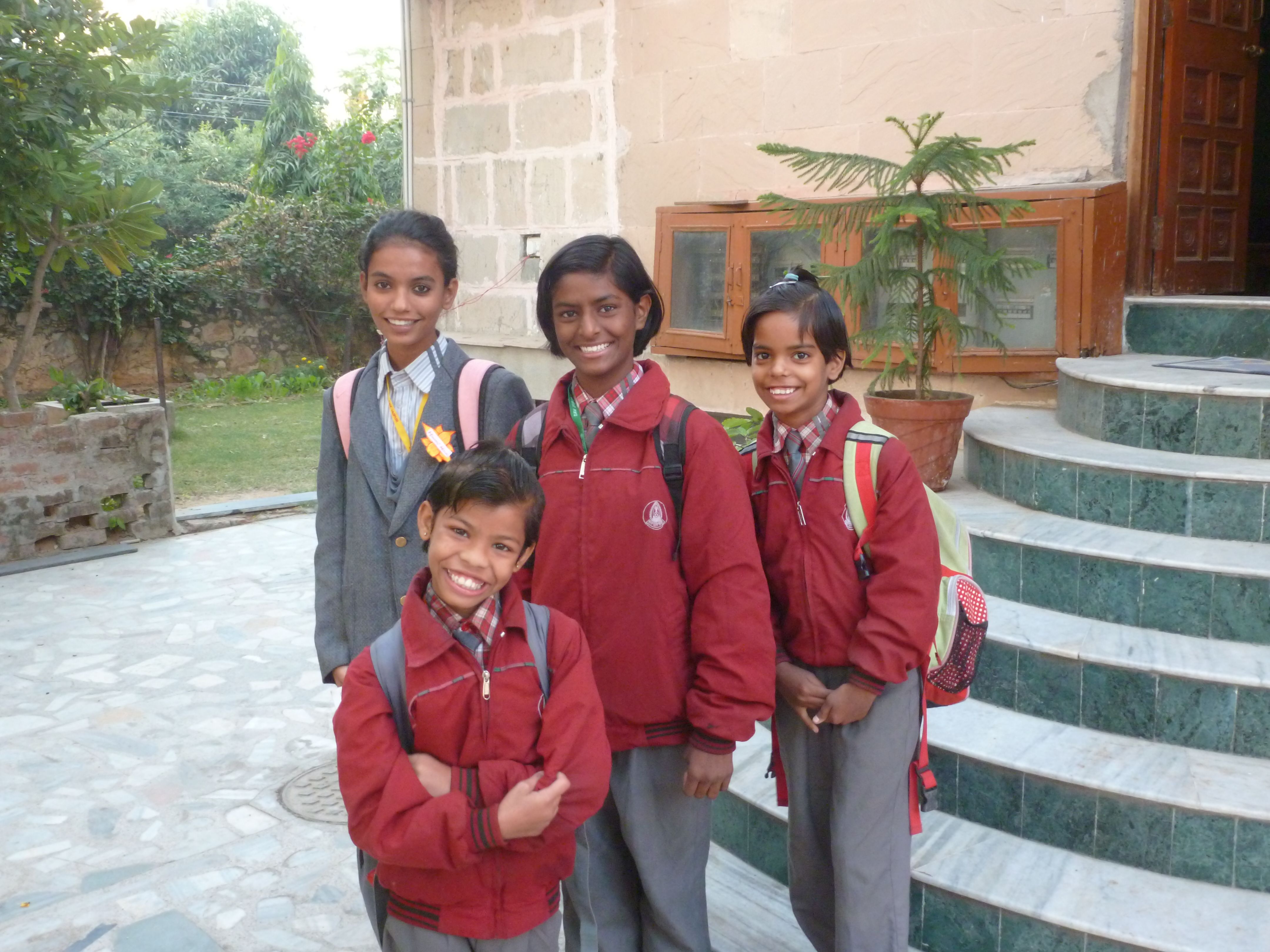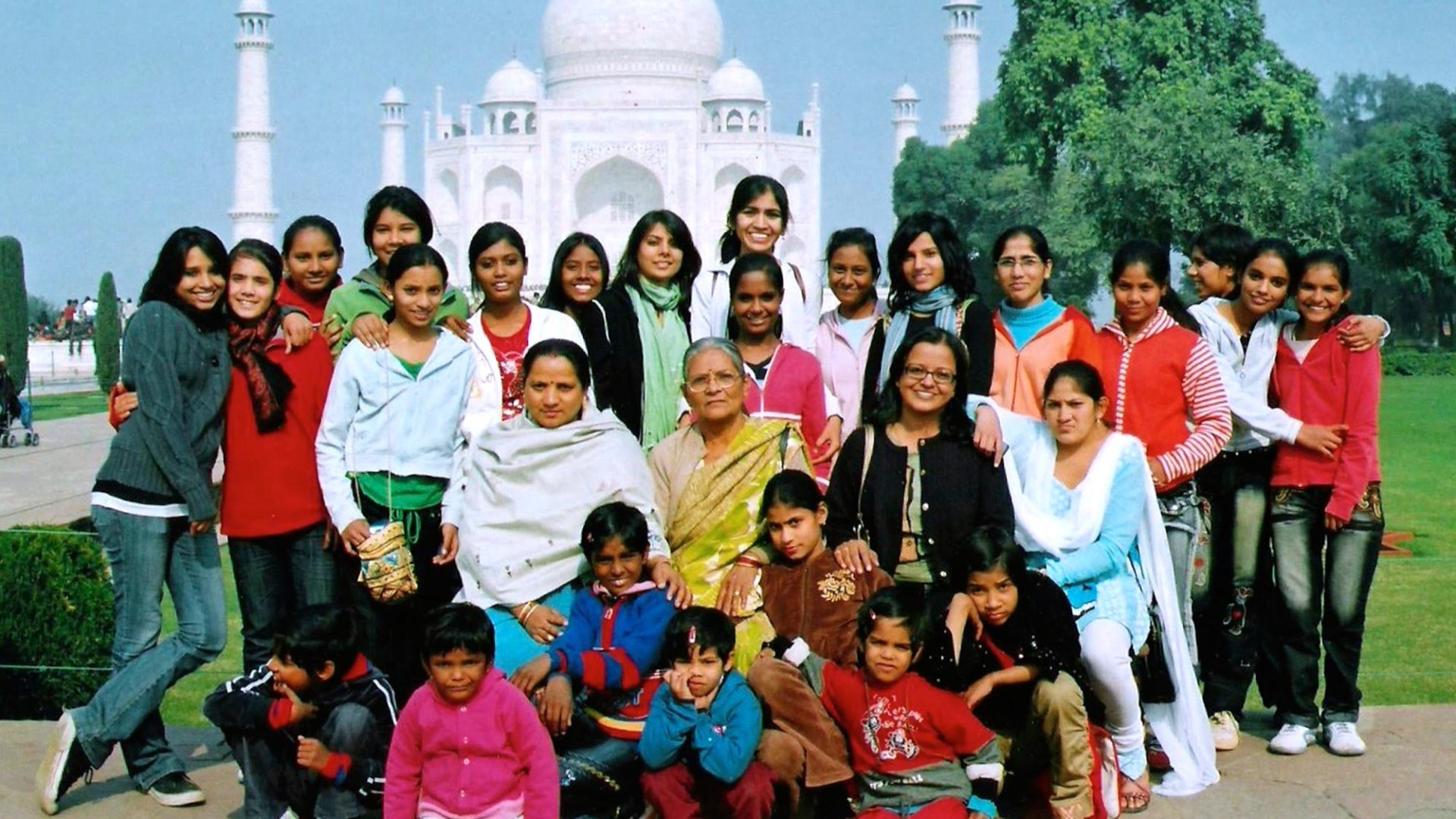
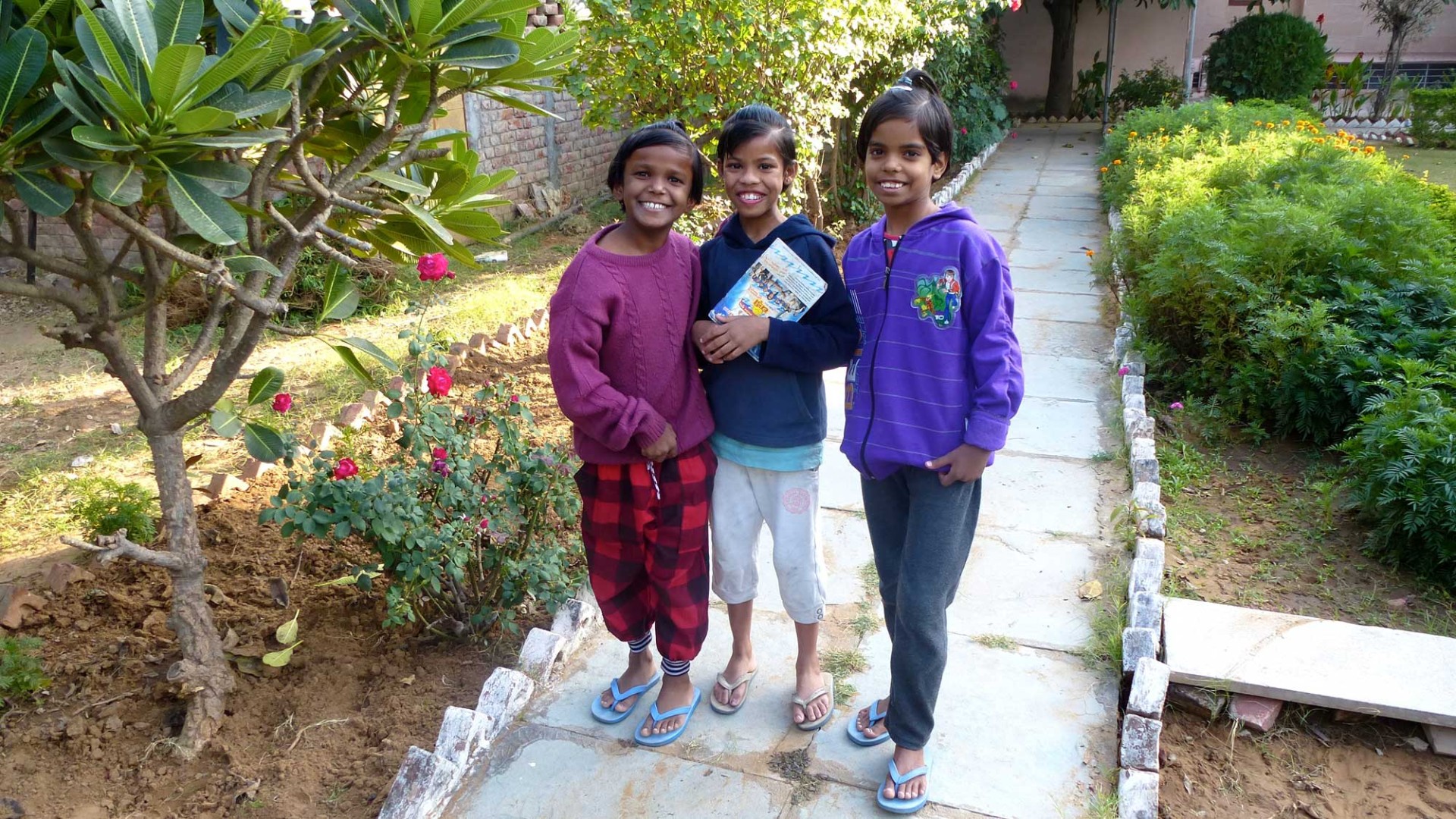
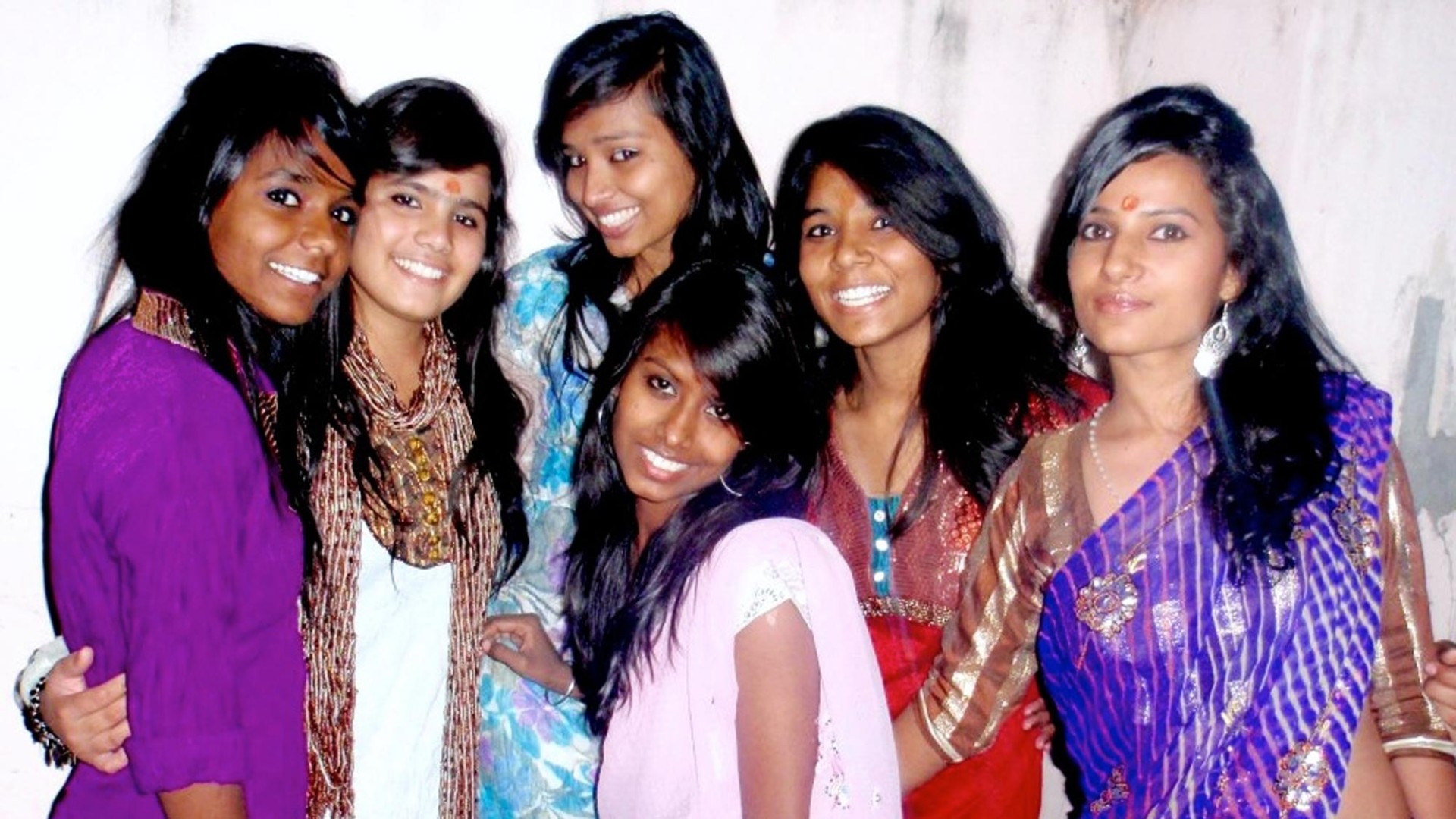
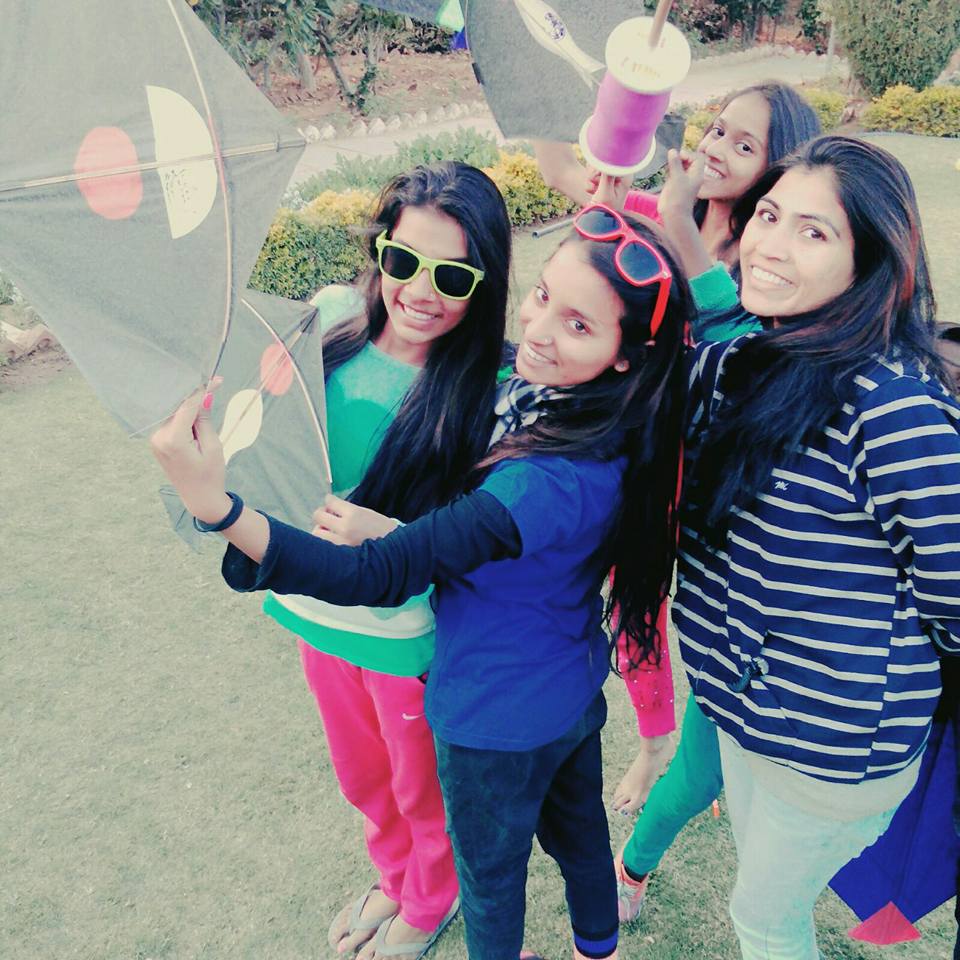
Divya grew up in an extremely poor family in the slums of Jaipur. She has three biological sisters and one biological brother, of which she’s the eldest. Her mother was 13-years-old and completely uneducated when she was married, and gave birth to Divya and her siblings in quick succession. Her father died when she was around 5-years-old, and like most girls at Sheela Bal Bhavan, she doesn’t know her exact age.
Her mother initially sent her to a government school, but the education she received there was extremely basic and practically non-existent. Most days she wouldn’t be able to go to class because she was working part -time as a maid in the homes of several middle-class families. And even on the days that she did make it to school, the teachers rarely showed up.

None of Divya’s relatives helped the family financially or otherwise after her father died. So, with five young children to care for, her mother – herself practically still a teenager– decided to marry Divya off when she was 13. In Divya’s estimation, her mother had no other option.
The husband that was chosen for Divya was 8 or 9 years her senior. Initially her mother promised her that she would not have to move to her husband’s home until she turned 18, but soon after the marriage, her husband came to collect her.
The marriage lasted two-weeks, during which time her husband emotionally and physically assaulted her. Divya managed to escape from him, and child welfare services sent her to live at SBB.
Initially, SBB was not willing to accept Divya. Joti worried that she was already too old to benefit from the education offered by the home, and that it would be difficult for her to fit into the home’s dynamic as a teenager. She was taken in on a trial basis, but the transition was not smooth. She had trouble adjusting to the social structure of the home, and it turned out to be far more behind in school than was even initially thought. According to Divya, when she first arrived at SBB she didn’t even know the alphabet or basic math. She was embarrassed because she was one of the oldest girls in the house and even the toddlers knew how to count and could recite the alphabet
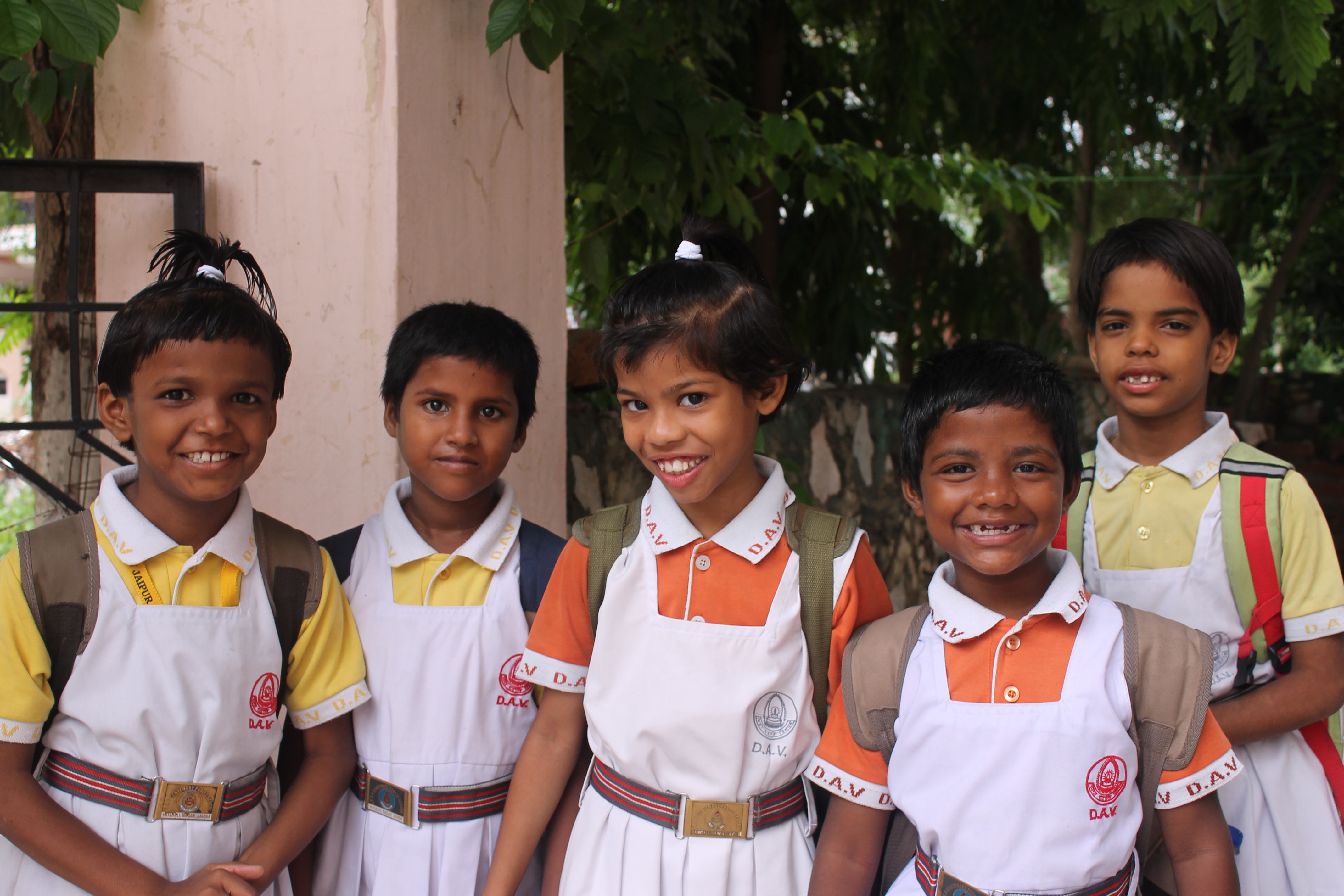
Since she was in no condition to attend a regular school, she was given a personal tutor, and in one year she completed grades 3-7 through home schooling. Given the extraordinary academic progress she had made through homeschooling, SBB enrolled her in a Hindi-medium school for 8th grade. Unsurprisingly based on her impressive progress thus far, she excelled academically – placing 16th overall in the statewide board exams during her first year of formal education. Her photo even appeared in the local newspaper.
Divya continued to excel academically throughout high school. When it came time to apply to colleges, she decided that she wanted to pursue a career in the health professions, narrowing her focus to nursing and physiotherapy because of the abundance of job opportunities in those fields. She eventually settled on physiotherapy, earning a merit-based academic scholarship that covered partial tuition costs.
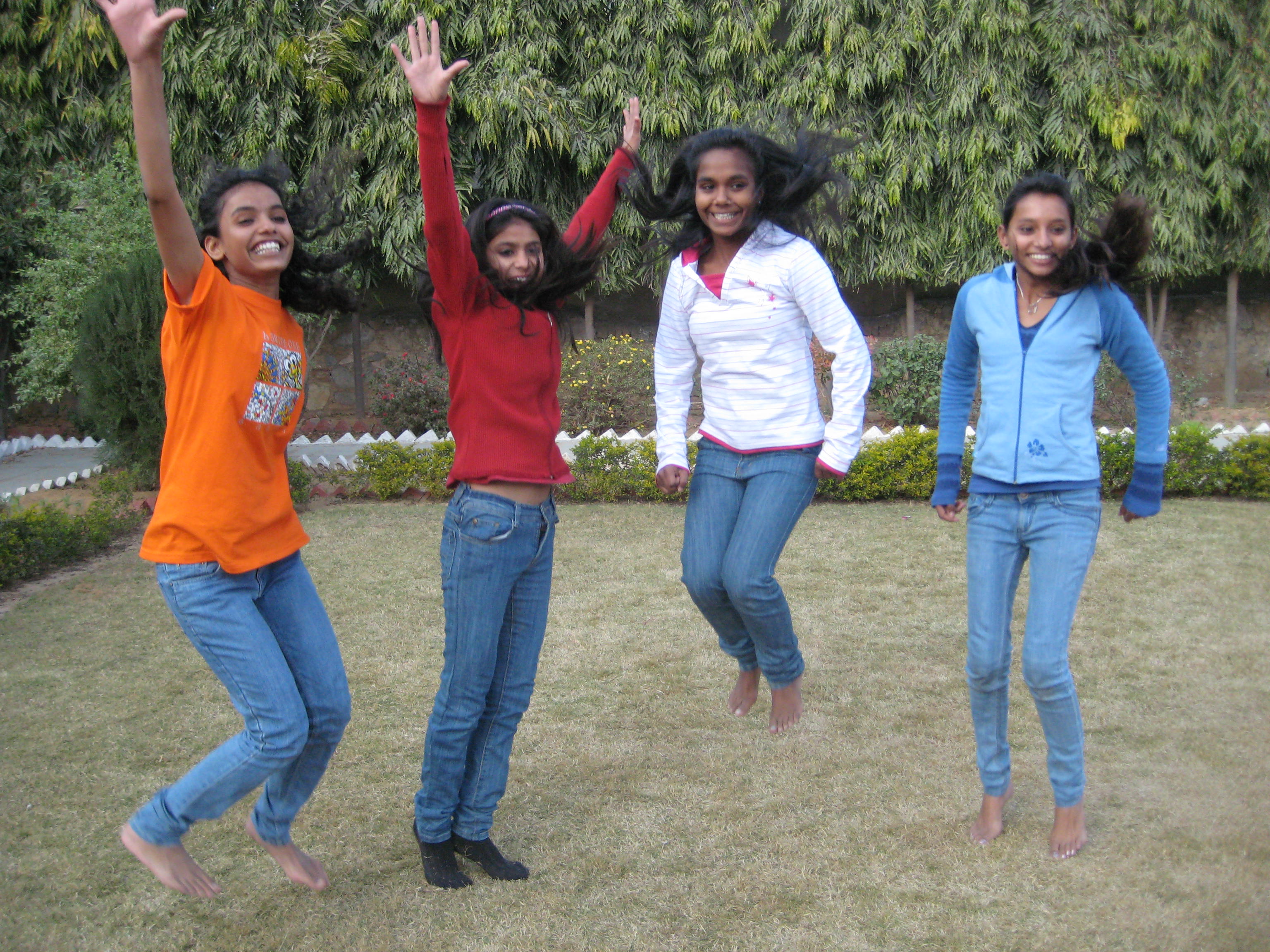
She was the first girl from SBB to leave Jaipur for college, studying at a well-respected college in southern India. She maintained her academic standing, always falling within the top 50% of the class and having her scholarship renewed. She eventually obtained a Masters in Physiotherapy from the same college, for which she also received a scholarship. She received an award at her convocation for having placed second in the first year of her Masters studies.
Divya is still living in southern India. She works as an assistant professor of physiotherapy in a teaching hospital, spending half her time in the classroom with students and the other half practicing in the hospital’s clinic.
Of all that she’s accomplished thus far, Divya‘s specifically proud of the number of “firsts” that she’s achieved: she was the first girl from SBB to move South for college, and the first girl to give back financially to the home. Now she wants to be the first to work overseas. Though her accomplishments are remarkable, Divya is still constantly striving to further her achievements. She is actively working with an immigration agency to find a job in Canada, a process that has proved costly and discouraging, be she is not ready to give up: “I want to do something bigger”, she says, adding that she can earn more money abroad to send back to SBB and to her biological family.
Divya insists that she doesn’t want to dwell on her past hardships and states that she refuses to be angry about what she’s suffered. Instead, she keeps her sights set on the future – moving to Canada, helping her nieces and nephews reach a better life, and joining the Can Care board so that she can have a say in the future of SBB.
